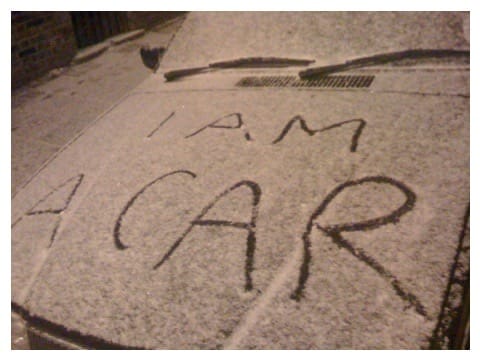Adolescence: growing pains
Warning: Spoilers. It's good until it's not.
Toward the end of the second episode, I lost my mind and jumped out of my seat TWICE. Two episodes in, I was ready to call Adolescence once of the most amazingly-produced TV shows I had ever seen.
And then I got to the second two episodes. To explained where that goes wrong and why, we need a quick step back through what makes the first half of the series so effective.
Episodes 1 + 2 used the perspectives of parents, kids and police to draw a frame around the central conflict and key themes. We don't spend much time with the suspect – instead we see his world, we see his father's anguished, confused, conflicted reaction to the evidence as it's displayed.
As a result it makes us wonder: why did this happen? Not necessarily why did he do this – but specifically, what made this happen? This is where it feels like we are going.
Now, Episode 3 starts its mistake by making the boy the central character. In doing this, the only thing that can be achieved is to demystify him. That's not necessarily bad – but you lose the impact of a more thematic representation. Now it's just a person.
So let's look at this person. He's a smart kid. He's a bit precocious, a bit prickly – but that's to be expected in the context. We already know he's a murderer. So we know what he's capable of.
But people aren't just good or evil, they are complicated and they do things for reasons that don't make sense until you know more. And in great fiction, the story is often just hinting at bigger things – bigger themes that it represents or some depth of character that shows us something we haven't seen before.
Except no, not here. He just gets REALLY angry sometimes because of something to do with masculinity. Nothing in particular mind you – this girl just posted a couple of times on his Instagram. So he murdered her. blah blah blah 80 / 20 blah blah blah.
Why is this such a problem? Because it takes an exploration of something big and real and important and it makes it small and stupid and black and white.
The truth is: we don't have thousands of teenage boys stabbing women because of toxic masculinity. The problem is not that they watch this stuff then they become murderers or their Dad shouts sometimes and that breeds psychopaths.
The problems are broad and social and complicated. They are nuanced and we don't just feel their impact through the mentally ill but in the lives of otherwise quite normal relationships poisoned by attitudes to women.
More than this: there are no doubt many aspects to this subject that I simply have no idea about as a 40 year old man. Like the lead police character, he relies on his son (sidenote: brilliant performance) to translate. I think we needed more translation from the kids.
But crucially not the kid who did it.
Here's another idea for Episode 3: it's a similar setup with an adult and a kid. Except it's the best friend of the suspect. And maybe the second half is interview with the best friend of the victim.
What might be revealed by characters without so much to lose, who can paint a picture of both the boy they knew and the trends they were experiencing. No they won't know why it happened. But they could give us a taste of that world with texture and detail that made us think.
Instead, it all goes a bit ITV drama – especially in the final episode. I had found the parent's perspective so interesting and so powerful in the first episode. Here, it just becomes melodrama. Predictable, but without much pathos. Miserable. No depth of regret and no hint of how this might feel except the obvious. No lessons learned (except what? Don't let kids use computers?)
I don't want to be too harsh – to even attempt this project is an incredible effort, and the fact so much of it works deserves huge praise. It is a technical accomplishment in its own league and does brilliant character work in the first half.
And let's go further: maybe on the page, it worked. Maybe there's no way of knowing that the translation couldn't be done. Sometimes less is more and emotion can carry you through. I'm sympathetic, making things is hard.
Even if they couldn't land the ending, it was easily worth it for the beginning.
Edit: feel even more strongly they missed their goals when you see intent in this:

